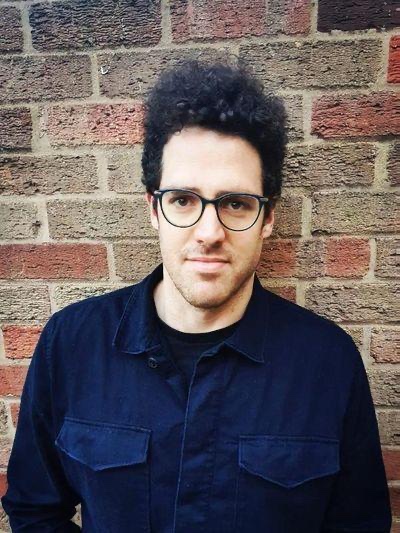Dr. Robert Topinka Speaks on Reactionary Rhetoric and Digital Culture

CONSPIRACY IN SOCIAL MEDIA: Dr. Topinka gave a lecture on campus this week.
Is the “okay” hand-sign a white supremacist sign? Where do extremist right-wing communities congregate and infiltrate mainstream media? How have alt-right and conspiracy theorist influences become so prevalent and successful in attracting followers in the digital age? In an era rife with polarization and untraceable and unregulated internet social circles, these are some of the questions often in the back of many peoples’ minds. Dr. Robert Topinka, a Senior Lecturer in Transnational Media and Cultural Studies in the Department of Film, Media, and Cultural Studies at Birkbeck, University of London, answered all these concerns about contemporary social media during a lecture on Thursday, April 13, 2023. The lecture was presented by the Department of Writing & Rhetoric and cosponsored by the Film & Media Studies Program.
Topinka argues social media is compelling the change toward radical and conspiracy movements. The speaker explains that people receive news today entirely differently than before social media technology developed and argues that the main difference is that social media is “evanescent, it is fleeting,” while print and broadcast culture used to be “more linear and routine.” Previously, the news was “linear,” roughly the same information was accessible and accessed by everyone.
In contrast, social media today is highly personalized to each person’s opinions and worldview using algorithms, considerably diminishing the “public sphere” and isolating people into “subcultures.”
Topinka said, “Our sense of context is breaking down…. Your effective connection to your location in the culture becomes more important. It promotes subcultural orientation. Which becomes something conspiracy theorists really capitalize on.”
Topinka also explained that alt-right and similarly “reactionary” content has an inherent advantage over other ideologies and news outlets in the current state of social media.
“So we know our social media are fueled by emotion. This is the coverage of Facebook leaks that revealed lots of things; one thing it revealed is that the Facebook algorithm gave more weight to anger (angry emoji) than it did to liking (like emoji)…. This situation creates an advantage for reactionary culture … they tend to have an antagonistic relationship with the mainstream; they do not like [popular culture] … so they [immediately] have an enemy.”
Senior William Lam inquired, “You mentioned how there is a lot of dissatisfaction with elites, and this right-wing movement is capitalizing on that and using this as momentum. I am curious if you have seen a sort of left-wing critique on capitalism or power that has also gained popularity online, and how does that compare to this right-wing conspiracy theory channel.”
Topinka informed the audience “There are left-wing groups online who have an online presence and are relatively effective and have relatively large followings, but they are still nowhere near as influential as the right-wing…. One reason is the reactionary position resonates really well with social media because they think we just need to restore the natural order….”
First-year Cecily Wang asked, “I just feel like, at Colgate, we are in a bubble. Even though this new phenomenon is introduced, we do not have any immune system to go against it. Even though we understand this thing happening, we do not have any power to help us out of it because if we do not interfere with it [how can we change anything?]”
Topinka responded, “One thing we could all collectively do is stop using social media. Social media puts us in this relationship to one another. If social media has power, then these groups will have power, but if people stopped using them, then they would no longer have power.”
Topinka further explained that trying to silence these people forcefully proves their point that the “liberals” and “corporations” are out to get them. Emerging social media and video platforms like Rhumble or less popular but more infamous 8kun, the successor to 4chan, the platform where Qanon originated, have grown surprising followings and become more prosperous when more content creators resort to them after being censored or de-platformed.
Topinka cautioned when asked about the potential solution to the radical or extremist influencers: “I used to think we should just ban these people […] And a lot of them have been banned, but it does not work; they just go somewhere else, and they can build audiences that way. So banning does not really work.”








